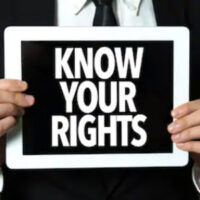Commercial Landlord-Tenant Laws in Florida: The Three-Day Notice and Right to Cure

If a commercial tenant commits a monetary violation of the lease—typically meaning that they failed to make rent payments on time—that is generally considered to be good cause for eviction. That being said, there are strict rules and regulations that govern evictions in Florida.
Commercial landlords must understand their rights and responsibilities under Florida law. Always follow the proper legal process when evicting a tenant. Here, our Miami landlord-tenant dispute attorneys provide an overview of Florida’s three-day notice and right to cure rules as they pertain to commercial tenant evictions.
Commercial Tenant Eviction in Florida: What You Need to Know
- Landlords Must Give Sufficient Notice
Although commercial tenants are generally granted fewer protections under Florida law than are residential tenants, they still have important legal rights. Landlords must respect these rights. When landlords violate tenant rights, it often leads to penalties or sanctions—potentially including the halting of an eviction and/or the awarding of financial damages to the affected tenant.
In the context of eviction, perhaps the most important legal right that commercial tenants have in Florida is the right to receive adequate notice. As a commercial landlord, you must give three days written notice before initiating eviction proceedings on the grounds of non-payment of the rent. The more notice you give, the better.
- Tenants Have a General ‘Right to Cure’ the Violation
Beyond giving notice of intention to pursue eviction, commercial landlords should also provide their tenant with an opportunity to “cure” the violation. In other words, an eviction notice should explain what a tenant can do to fix the issue and stop the proceedings from moving forward. If a commercial tenant owes past-due rent, Florida law generally grants them the opportunity to make a full payment to rectify the issue. Make sure you inform your commercial tenant in writing exactly how much they need to pay to come into compliance with the terms of the lease agreement.
- Always Avoid Self-Help Evictions
Finally, commercial landlords in Florida should always avoid self-help evictions. Fundamentally, eviction is a legal process. It must be done in the proper manner. One of the biggest mistakes that a commercial landlord can make is entering a tenant’s unit and either changing the locks or starting to remove their belongings. This will only cause problems. Commercial landlords have the right to evict a tenant who is not paying what they owe under the lease. Work with a lawyer who can help you evict a tenant in accordance with state law.
Get Help From an Experienced Commercial Landlord Rights Attorney in Miami, FL
At Pike & Lustig, LLP, our skilled Florida landlord-tenant litigation attorneys are committed to protecting the legal rights and economic interests of commercial landlords. If you have questions or concerns about evictions, we are here to help. For a confidential, no obligation initial legal consultation, please call us at our Miami law office or call us at our West Palm Beach law office. We look forward to assisting you.



